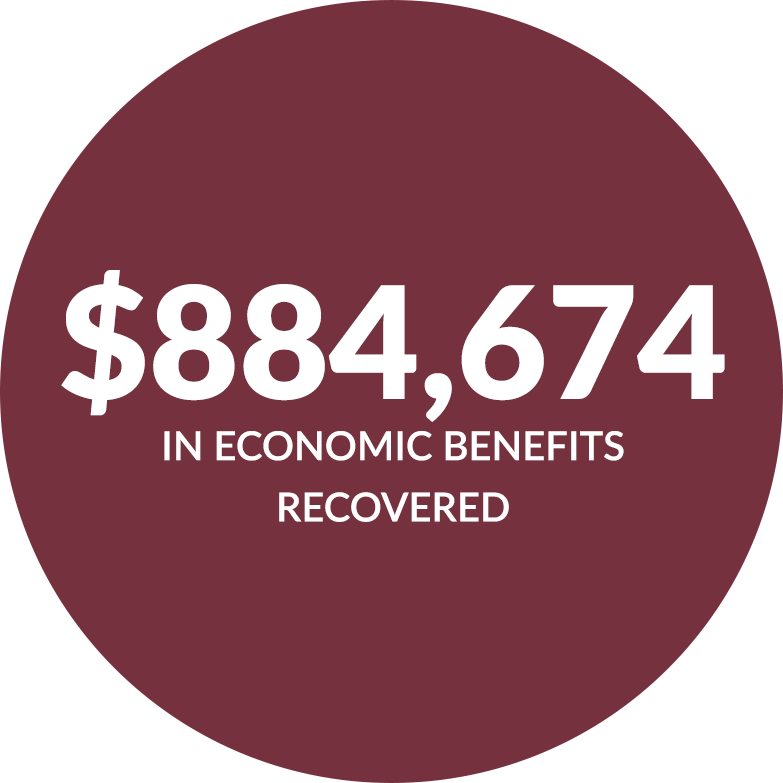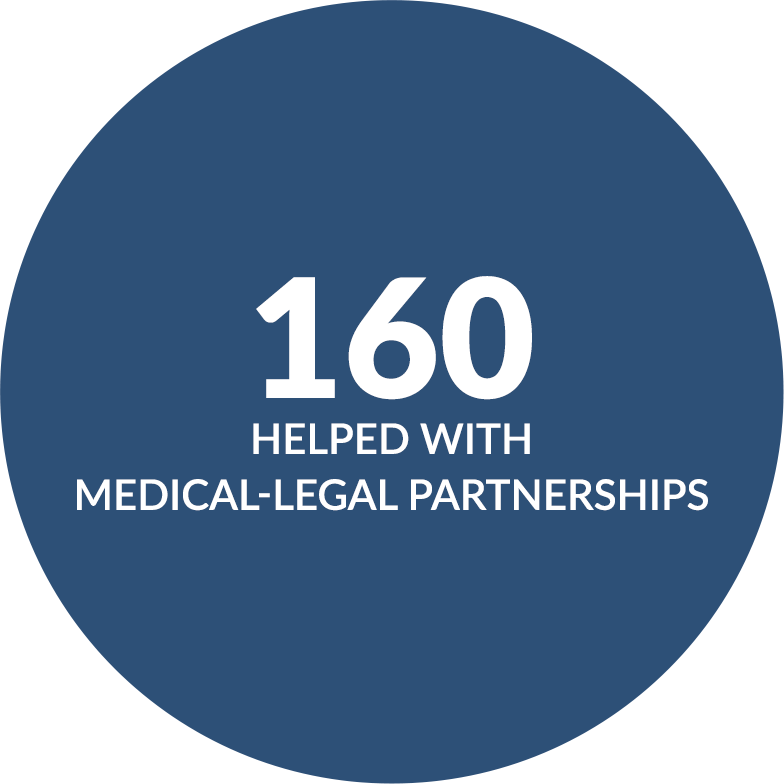
HEALTH
Those living with health and mental health issues can receive free legal advice and representation. This includes helping disabled individuals to receive the public benefits they are entitled to, providing legal help to those experiencing homelessness, and advocating for the rights of those experiencing acute mental health crises.
Advocating for the Health and Well-Being of Unhoused People
Our team continues to advocate for people living without shelter throughout Silicon Valley. Staff regularly visit encampments in San Jose and advise residents about their legal rights and options. In early May 2022, the San Jose City Council discussed the City's encampment management plan and the planned sweeps of Guadalupe River Park. Law Foundation attorneys submitted an advocacy letter in advance of the meeting.
Encampment sweeps force the displacement of people and families, sometimes without any direction on where else they can safely live and sleep. These residents often lose many of their limited possessions, including medicine, clothes, and food, as well as contact with service providers who rely on knowing their location to provide access to healthcare and other safety-net services.
The Law Foundation’s advocacy letter raised constitutional issues regarding the plan's creation of buffer zones, areas of the greater community where encampments are forbidden, and other public health concerns about how the plan would further criminalize unhoused communities. The Law Foundation’s letter and public comments helped to inform City Council members of the important legal implications of encampment sweeps and amplify the safety and health issues of marginalized unhoused people in San Jose.
Securing Disability Benefits as a Path to Stability
About one out of every four young workers today will find themselves disabled in their lifetime. Following years of work, people may no longer be able to support themselves due to a long-lasting medical impairment. Obtaining disability benefits can mean increased economic stability and a better quality of life. Appealing an unfair denial of benefits can be frustrating and complicated. We stepped in when Greg, a 56-year-old Black transgender man, and veteran, contacted the Law Foundation after being denied Social Security Disability Insurance (SSDI).
Our Health attorney helped Greg in the appeal of his denial. Although Greg was denied at the first stage of the appeal process, our attorney represented Greg in his hearing several months later. After a lengthy hearing, Greg received a fully favorable decision and was found disabled and eligible to be awarded SSDI benefits dating back to October 2017. A total of $48,000 in retroactive benefits were allocated, as well as approximately $1,100 in ongoing monthly benefits. While his SSDI case was pending, Greg used some of the same evidence and medical records to apply for disability benefits through the Veterans Administration (VA) and was awarded additional disability benefits through the VA. With these great outcomes, Greg was able to use his income to finally find permanent housing after many years of homelessness.
Mental Health Representation Returns a Mother to Her Baby
People dealing with serious mental health issues can at times be left with little control over their care. Our Health team works to ensure that people in involuntary psychiatric holds understand their rights and options. We met Kara*, a 27-year-old Black, Cuban, and Cherokee woman after she was placed on an involuntary mental health hold at San Jose Behavioral Health Hospital.
Kara’s family encouraged her to go to the hospital after experiencing multiple destabilizing stressors, including sleep deprivation as a new mother of a six-month-old, a car accident, and a recent attack by a family member, all while having run out of her mental health medication. However, at the facility, hospital staff placed Kara in restraints and on a psychiatric hold.
Our advocate represented Kara, advised her of her rights, reviewed her medical record, and talked with her family. Our attorney recognized that the nursing notes painted a convoluted narrative that failed to demonstrate appropriate legal justification for Kara’s restraints and instead indicated that the restraints were related to racial bias.
Another Health attorney obtained affidavits from her family. With our help, Kara was released from the hospital feeling more stabilized. She was grateful to go home to spend her first Mother’s Day with her baby.



